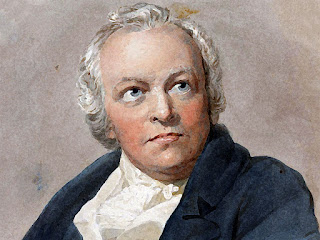Who was Wither? Who was Blake? Who was Watts?
Who are these names in "Watt's Cradle Hymn," "Wither's Rocking Hymn," and "Blakes Cradle Song"?
by R. Rojas
Updated, Oct. 8, 2023
Updated, Ded. 13, 2025 for broken links
There are several carols that bear the names of their owner. All of the songs are lullabies, and they are some of the prettiest lullabies in the carol literature. These are “Watt’s Cradle Hymn,” “Wither’s Rocking Hymn,” and “Blake’s Cradle Song.”
Both Blake’s and Wither’s were arranged by Ralph Vaughn Williams ("RVW"). George Wither was a 17th Century poet and prose writer who fought in the English Civil War, on both sides.
He was captured by the Royalist and saved
from execution by fellow poet Sir John Denham. The editors of the New Oxford Book of Carols state that
Denham “pleaded that so long as Wither lived, he (Denham) would not be
accounted the worst poet in England.” In a 1642 publication Haleluiah, Wither published his “Rocking
Hymn,” however, it is actually one of two ‘rocking hymns’ included in his 1642
work.
It was included in The
Hymnes and Song of the Church (1623), but the text stated that it could be
sung to “easie tunes.” (sic.). Orlando Gibbons would apply 17 tunes. Wither and Gibbons collaborated in
the 1623 book mentioned above. Not only
was the “Rocking Hymn” included, but also another carol: “Thus Angels Sung” (The
Angel Song), also with music by Gibbons. Vaughn Williams would include his
setting of the “Rocking Hymn” in the 1928 The
Oxford Book of Carols.
Isaac Watts needs no introduction to the hymn lover. Watts is the writer of “Joy to the World” and “When I survey the Wondrous Cross.” “Cradle Hymn” is the less popular Christmas sibling to “Joy to the world.” Watts included it in his Moral Songs (1706) whose songs were intended for children.
The editors of the New Oxford Book of Carols omit verse 8, which has been called anti-Semitic, as well as verse 12 for the somewhat gruesomeness of its text. Nevertheless, the tune was not blessed by the likes of Gibbons as in Wither’s or the likes of Handel (misattributed) as in Watt’s “Joy to the World.” The editors state it suffered from lack of a good tune for more than 250 years. We assume the editors were even critical of Sumsion's and Stanford's versions.
According to the editors, it was not set to a good tune until Elizabeth Poston set it to a tune in her The Second Penguin Book of Christmas Carols (1970). This tune is a popular shape-note melody, thus the editors attributing the tune to “American traditional” although they say the tune probably has European folk roots.
"Watt's Cradle Song" John Turner
"Watt's Cradle Song" Charles Villiers Stanford
“Blake’s Cradle Song” survives as a popular poem of Mary cradling the baby Jesus. Of course, Blake refers to the poet William Blake.
The 1789 poem was included in Songs of Innocence by William Blake. The poem has been set to song by the likes of Bob Dylan, John Lennon, Bono, and Led Zepplin. As titled, “Blake’s Cradle Song” usually refers to the version by Ralph Vaugh Williams.
However, the poem is used also by Benjamin Britten in “Cradle Song,” from A Charm of Lullabies, Op. 41, which is a song-cycle for mezzo-soprano. This song cycle includes lullabies not only by Blake, but also by Robert Burns, Robert Greene, Thomas Randolph, and John Phillip. Britten’s version was premiered in 1948.
In "A New Catalogue of Works of Charles Villiers Stanford 1852-1924" list that Standford composed a piece to Blake's "Cradle Song" but we've been unalbe to find a video performance of it.
RVW’s song comes from 1928, subtitled “Sweet dreams, form a
shade" and included in The Oxford
Book of Carols of the same year. Critic David Vernier, who reviewed the
recording A Ralph Vaughn Williams
Christmas by the Chapel Choir of the Royal Hospital Chelsea, says “Blake’s
Cradle Song,” outside of Ralph Vaughn Williams more popular, is his best tune.
Sources:
Parrot, Andrew. Oxford Book of Carols. Oxford University Press.
Poston, Elizabeth. The Second Penguin Book of Christmas Carols.
Disclaimer: The owner of the photo or photos above is unknown. Infringement
is not intentional and photos is used for education and review purposes only
within the Fair Use Clause of Section 187 of the Copyright Act. We will oblige
any take down request under the DMCA.






No comments:
Post a Comment